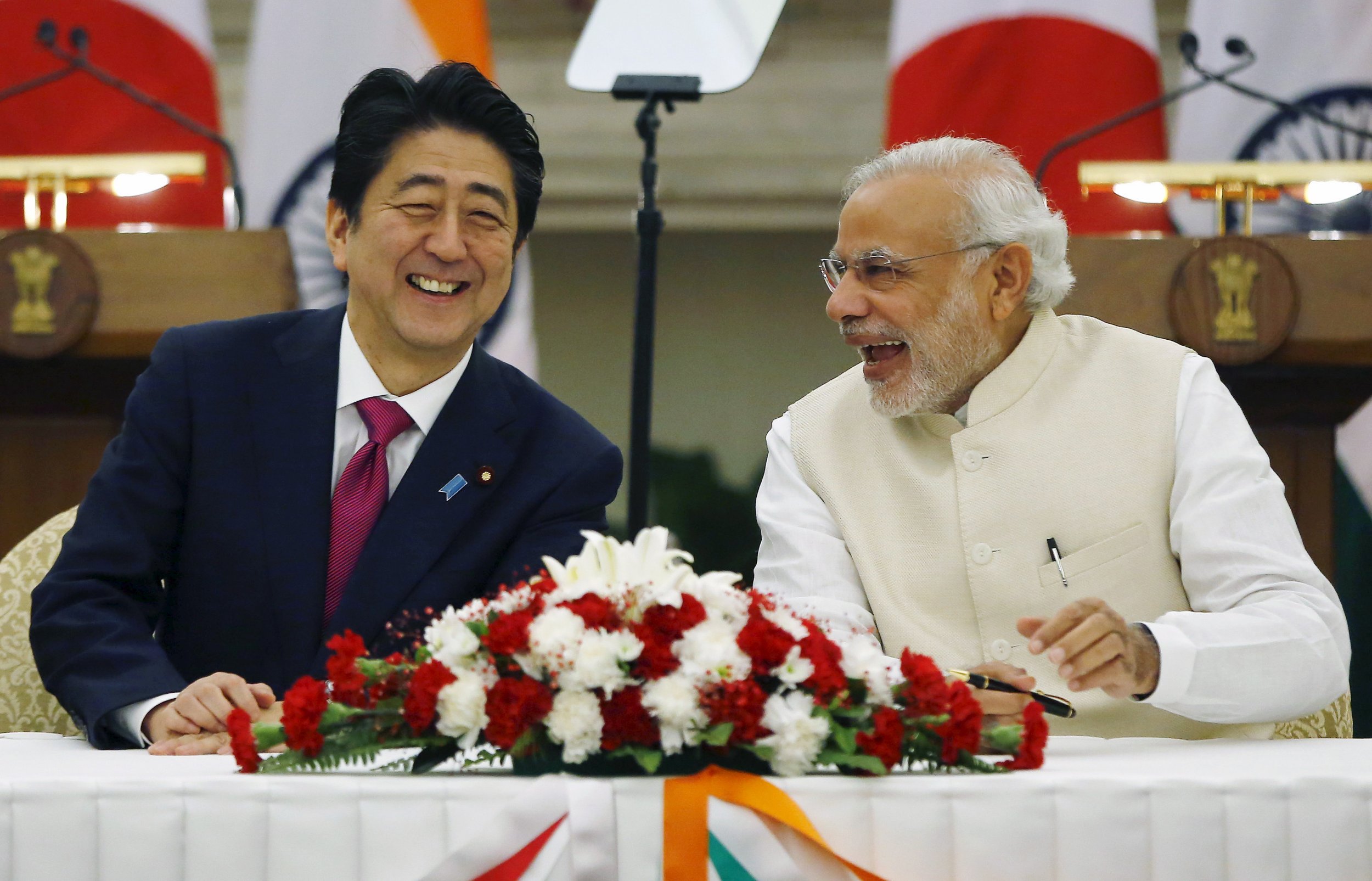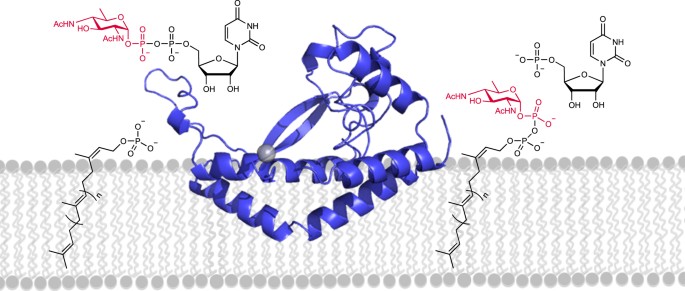
- Select a language for the TTS:
- UK English Female
- UK English Male
- US English Female
- US English Male
- Australian Female
- Australian Male
- Language selected: (auto detect) - EN
Play all audios:
_This article _ _ first appeared on the Riding the Elephant blog__._
In Delhi after a series of foreign trips, Indian Prime Minister Narendra Modi has trying to plug some of the gaps that have emerged in his and his government's performance in recent
months.
Japan's prime minister Shinzo Abe and the Pakistan government have played ball with potential deals and talks, but Rahul Gandhi and his mother Sonia have been unwilling to let their
Congress Party co-operate in parliament, despite the damage that they are doing to the Indian economy.
There has been considerable criticism that the implementation of Modi's foreign policy has not matched the razzmatazz of his many high-profile visits abroad. In particular,
announcements of deals that now total over $100 billion have not made much progress, and his approach to relations with Pakistan has had little coherence.
Both these issues have been at least partially addressed in the last week or two. Shinzo Abe has just been visiting India for a constructive high profile visit, and relations with Pakistan
have been eased.
Abe's talks with Modi on December 12 produced a string of deals carrying, unsurprisingly, a billion-dollar tag—this time $35 billion, which is the same figure that was attached to
announcements (some different, some the same) when Modi visited Japan in September last year.
Judging by their body language, there is greater warmth and understanding between these two prime ministers than between Modi and other world leaders, apart possibly from President Obama.
Certainly the warmth looks more spontaneous than the reserved smiles that Modi had in the U.K. for David Cameron last month.
Real progress has been made with Japan after five years of negotiations on a civil nuclear deal that would allow Japanese companies to build nuclear plant reactors in India and also to make
parts for U.S. and French (GE, Westinghouse and Areva) companies' Indian projects.
Japan has in the past been wary because India has nuclear weapons, and the proposed deal will now have to go through various legal and possibly difficult parliamentary procedures in Tokyo,
as well as finalization of technical details. But the progress is significant, not least because it emphasizes cooperation between two countries that regard China as a sometimes hostile
neighbor.
Japan has also beaten China on cooperation with India for the development of high speed "bullet" trains, which significantly comes just after China defeated Japan on a similar
project in Indonesia. It has agreed to make a $12 billion 50-year loan at just 0.1 percent interest for a high-speed train to be completed (supposedly) in seven years between Ahmedabad in
Modi's home state of Gujarat and Mumbai. This forms part of a plan for bullet trains connecting the major metros.
The rest of the $35 billion is more tentative and problematic—a $12 billion "Make in India" fund for Japanese investments in India that will only happen when India's
procedures are eased, $5.5 billion for a projected Chennai-Bangalore industrial corridor, and $5 billion for other projects. Other agreements included defense liaison on the South China Sea
where China is making territorial claims, and on defense manufacturing.
Tokyo had been disappointed by the last of progress made since Modi's visit to Japan 15 months ago, and it now remains to be seen whether Abe's visit will change that.
The rapprochement between Pakistan and India first appeared when the countries' two prime ministers were photographed chatting intensely at the opening of climate change negotiations in
Paris on November 30.
This began to unravel blockages to talks that had been caused both by India over whether Pakistan should talk to separatist leaders from Indian Kashmir, and by Pakistan wanting the
sovereignty of Kashmir to be included in any agenda.
A week later, the foreign secretaries and national security advisers of both countries met on neutral ground in Bangkok for talks that were only publicized after they had taken place.
They agreed to carry forward their "constructive engagement" and that led to a visit by Sushma Swaraj, India's foreign minister, to Pakistan, ostensibly to attend a conference
on Afghanistan. She met Pakistan Prime Minister Nawaz Sharif and, in a nice touch, his daughter. The next step is for the two countries' foreign secretaries to meet again to revive a
broad-based dialogue.
Modi was probably motivated on these initiatives partly because he was being widely criticized for allowing good relations, which he established with Sharif when he first became prime
minister, to crumble, and partly because he should attend a South Asia regional cooperation conference in Pakistan next year so needs to remove diplomatic blockages.
This does not mean that the talks will get anywhere, though Indian analysts are suggesting there might be more hope of progress because Pakistan's new national security adviser, Nasser
Khan Janjua, a retired army general, has been picked by Pakistan's army chief, Raheel Sharif (no relation to the prime minister), who controls what happens on the relationship. This
means that India will be negotiating with the army chief's representative instead of politicians who lack final authority.
Meanwhile on domestic issues, Rahul and Sonia Gandhi have been stopping proceedings in the Rajya Sabha, the upper house of parliament, and have thus stalled progress on important general
sales tax legislation, which the government hoped to pass in the current session that ends on December 23.
The Gandhis have been protesting because on December 7 they were ordered to appear in a Delhi court on December 19 to explain alleged irregularities in financial dealings involving a defunct
Congress newspaper, the _National Herald _that owns valuable properties in Delhi and elsewhere, and a company, Young Indian, controlled by them and two other Congress officials.
It seems highly improbable that the Gandhis had any intention of personally benefiting from the financial arrangements, but it does appear that they regarded the newspaper and its properties
as, to quote _ Outlook_ magazine this weekend, "their personal fiefdom" and maybe allowed some irregularities in the company dealings.
The summons certainly seems to have destabilized Sonia and her fellow party leaders, who reportedly met till 3 a.m. one night last week to discuss the implications. Sonia even told
reporters, "I am the daughter-in-law of Indira Gandhi. I am not scared of anyone. I am not disturbed," as if invoking the name of India's former prime minister would somehow
gain public sympathy.
The court action has been initiated by Subramanian Swamy, a maverick politician and former minister, who has been running a vendetta against Sonia Gandhi for some years, even alleging she
has had financial support from the Russian KGB and secretly exported valuable antiques to shops owned by her family in Italy.
Instead however of dismissing Swamy's _National Herald _accusations as they have his other stories, and dealing with the court summons as a legal matter, they organized protests that
stalled the Rajya Sabha for four days and disrupted the Lok Sabha (lower house).
They claimed that it was a political vendetta by the government, which in other circumstances could well be true because governments in India regularly initiate and then slow down legal
actions against rivals and wayward supporters for political ends.
This time however it is unlikely that the Modi government organized the court decision. In the previous week, parliament had been making unusual progress with constructive debate and Modi
was trying to build bridges with the Congress leadership.
There is still time for parliament to pass the sales tax legislation if the Congress dynasts behave like ordinary citizens and sort out the _National Herald _muddle in court, negotiate as
responsible politicians with the government on some amendments and allow parliament to do its job.
_John Elliott writes from New Delhi. His latest book is _ IMPLOSION: India's Tryst With Reality _ (HarperCollins, India)._








